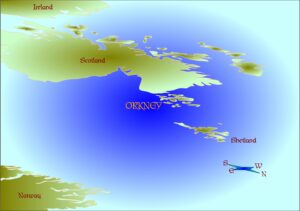
There is a lot of discussion today about the power of the centre versus the power of the periphery. It is a question that transcends disciplines. In politics we see debate over the role of ordinary people in shaping both policy and institutions – there are numerous examples to be drawn from our own experience as in the Brexit vote, or the re-election of Jeremy Corbyn and we can also draw examples from the experience of others such as the continuing support for Donald Trump. Examples can be strategic and serious as in the events of the failed coup in Turkey, or more light-hearted and tactical, as in the debate (and eventual compromise) over the naming of a new polar research vessel: in this case it is the remote sub-sea vehicles that will bear the popular name of Boaty McBoatface. It occurs to me that people, us, are beginning to feel empowered as never before.
The old adage, ‘act local, think global’, is finally coming to fruition.
This is not just a matter of politics. It is something that affects many other aspects of our lives. One theme that came strongly out of the presentations and debates at CHAT2016, which I attended in Kirkwall recently (convenient), was the way in which communities are increasingly taking the lead in identifying the form and shape of their heritage. You might say that archaeologists have been keen for many years to involve local people in archaeology projects. And indeed this is so. Professionals have been working hard to give a voice to local people. But that is exactly my point. The difference today is that it is the people, not the professionals, who are leading the projects. The situation is no longer the rather patronizing one where we, as professionals, came into an area and identified ‘worthwhile projects’ with which people might like to become involved. Today, local groups are often in existence long before they bring in the archaeologists. In this way, and especially with regard to the archaeology and history of more recent years, we are beginning to create a record of the past that presents the view of those who experienced it, rather than those who have been trained to investigate it.
It is a new view of the professional: as facilitator, rather than instigator, but it is an exciting development. One in which our skills become truly worthwhile. There are numerous examples in other disciplines: self-publishing; pop-up cafes and shops; even Uber? Finally, the age of ‘Power to the People’ has arrived. I’m wondering why?
I’m wondering whether this is the real revolution of social media. The common use of Twitter, Facebook, Instagram, and all the other platforms has fostered an atmosphere in which we have all come to believe that we have authority. We recognise now that what we have to say is worthwhile. Social media, facilitated by broadband and 4G, allows our views to be shared, picked up, passed on, and enhanced. So, for the first time, we all have a voice that can travel. We have the power to organise. Of course, it has to be used with care, but it is a voice that increasingly, collectively, has power.
I’m not sure where this is leading us. There is something inherently unsettling about breaking away from the power of authority and I have a feeling that we may be in for some challenging developments. Our new world will, no doubt, require great powers of negotiation and compromise. Things may not always be done as we might like. But, in the long run, we will get used to things and I feel, I hope, that it will be positive. It is certainly bringing new and positive angles to our experiences of the past.
You must be logged in to post a comment.